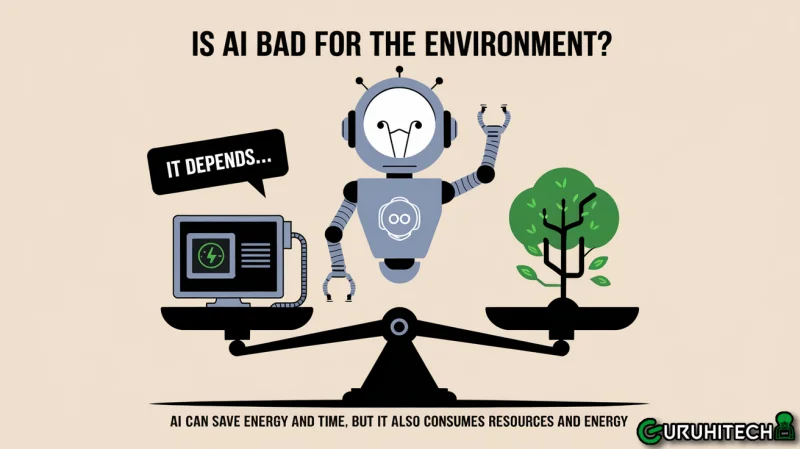Is AI Bad for the Environment? Find Out If Your Time-Saving Tool Is Eco-Friendly

There’s no denying that AI is rapidly changing the way we work in a positive way.
However, as eco-conscious consumers, it’s important to ensure your favourite technology and tools do not have a negative environmental impact.
The Problem with Big LLMs
Large Language Models (LLMs), like GPT-4, are remarkable. However, they come with significant environmental costs, especially when it comes to energy consumption. If sustainability and energy efficiency are important to you, it’s best to be cautious about relying too heavily on big LLMs.
Why Is AI Bad for the Environment?
AI may be increasing your efficiency, but what about their energy efficiency?
AI models need significant computational power to provide quick responses, which requires the right tech.
Unfortunately, this has led to a rise in emissions due to the need for more carbon-intensive materials to build data centres. Even computer chips are adding extra emissions to the mix.
In February 2024, Sam Altman, the founder of Open AI, announced his bid to raise $7 trillion to increase computer chip manufacturing and expand AI more quickly.
This is only impressive if projects such as this take energy consumption into account.
Check If Your AI Tool Uses Green Data Sources
Traditional data centres aren’t generally renowned for their power usage effectiveness.
However, AI doesn’t need to become an environmental threat. Renewable energy generation just needs to become an integral part of data centre infrastructure management.
A green data centre and sources are essential pieces of this important puzzle. Here’s why you should make sure the tools you rely on use renewable resources:
- Renewable energy sources: A green data centre is powered by solar, wind, or hydropower, significantly reducing fossil fuel use.
- Efficient cooling systems: Traditional data centres require enormous amounts of energy to keep servers from overheating. Green centres use advanced cooling technologies, which increase energy efficiency in a big way.
- Refurbished hardware: Green data centres often use refurbished or recycled tech, reducing the need for resource-intensive production processes.
- Energy and environmental design: Many green data centres incorporate energy-efficient lighting, water conservation systems and eco-friendly materials.

Will AI Get Better at Using Less Processing Power?
The good news is that the future of AI energy consumption looks bright. Several developments will ensure carbon usage effectiveness in the coming years:
Energy-efficient algorithms
AI researchers are actively developing more energy-efficient algorithms that can deliver the same or better performance. These algorithms are designed to optimise how AI models learn with less energy usage.
Edge computing
Instead of relying on distant servers, edge computing processes data closer to its source. By reducing the amount of data that needs to travel to and from data centres, edge computing decreases the load on centralised processing power and energy use.
Specialised hardware
The development of specialised hardware also reduces AI’s energy consumption. New AI-dedicated chips are designed to handle tasks with greater efficiency while consuming less power.
Final Thoughts
Opting for AI tools that have been sustainably produced or run from a green data centre is one way to do your part.
Our environment is already under a lot of strain, so anything that can be done to lower energy consumption in everyday life should be actively pursued.
Ti potrebbe interessare:
Segui guruhitech su:
- Google News: bit.ly/gurugooglenews
- Telegram: t.me/guruhitech
- X (Twitter): x.com/guruhitech1
- Bluesky: bsky.app/profile/guruhitech.bsky.social
- GETTR: gettr.com/user/guruhitech
- Rumble: rumble.com/user/guruhitech
- VKontakte: vk.com/guruhitech
- MeWe: mewe.com/i/guruhitech
- Skype: live:.cid.d4cf3836b772da8a
- WhatsApp: bit.ly/whatsappguruhitech
Esprimi il tuo parere!
Ti è stato utile questo articolo? Lascia un commento nell’apposita sezione che trovi più in basso e se ti va, iscriviti alla newsletter.
Per qualsiasi domanda, informazione o assistenza nel mondo della tecnologia, puoi inviare una email all’indirizzo [email protected].
Scopri di più da GuruHiTech
Abbonati per ricevere gli ultimi articoli inviati alla tua e-mail.
